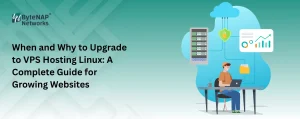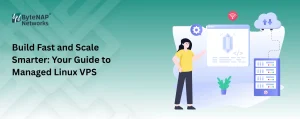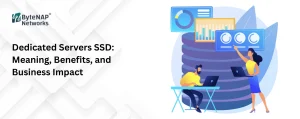The importance of Information Technology in online business is increasing with each passing day. Regardless of the market or sector, IT is a competitive differentiator. The era of on-premise servers is gradually passing away as more and more scaling businesses are relying on the benefits of data center virtualization.
Gone are the days when organizations had old desktops and a server in the closet. Softwares such as Windows Exchange and QuickBooks are completely mobile, connected at all times, and cloud-native. The success of a business and its future growth are highly dependant on the powerful technological base.
What is Virtualization?
Virtualization is the process of turning a physical server into several virtual servers with the help of a hypervisor. Virtualization allows businesses to run several applications in multiple environments on the same physical server.
For more details on what is a hypervisor, you can read our blog post.
For instance, earlier, if you had four applications that needed four Gigabytes of memory and 16 Gigabytes of disk space, you would require four distinct servers with these specifications.
On the other hand, in the modern-day, a single server having 16 Gigabytes of memory and 64 Gigabytes of disk space can be segregated or virtualized to house all of the four applications, each having its own dedicated environment.
The Benefits of a Virtual Data Center (VDC)
Just like private servers can be virtualized, so too can whole data centers. In a virtualized data center, the whole pool of physical servers or cloud resources can be virtualized to offer businesses a more enhanced technology with several benefits.
Though there are few cases where having a physical server or data center makes sense. However, in the majority of use cases, virtual data center proves to be more beneficial.
Now, let’s discuss the five key benefits of data center virtualization for your business.
Excellent Return on Investment (ROI)
Virtualization technology is used to capitalize the available resources in a physical machine.
When we talk about the virtual data center, its resource efficiency is quite similar to a single physical server that is virtualized to run four or even more virtual machines. Moreover, a virtual data center offers the resources you need without having to take the burden of paying for unused hardware, connectivity, or electricity.
The ROI for a virtual data center is remarkably higher than owning and managing your own physical server racks.
Minimal Cost for Maintenance and Management
With virtualization, the resource allocation in virtual servers is made more effective thereby minimizing the cost of maintaining and managing those servers.
Additionally, you can save on physical space costs, power, security, connectivity, and power as well as server and network admins.
In most cases, virtual data centers are offered as Infrastructure-as-a-Service(IaaS) which means that you just need to manage the operating system. Anything below the OS(hardware, bandwidth) is managed by your IaaS provider. This means that your team can concentrate on core competencies rather than managing a data center.
Ease of Operation
Yet another advantage of the data center visualization is unified data management from a single application.
In short, provisioning of new servers, creating and restoring backups, managing inventory counts, and device discoverability are all streamlined and simplified.
For instance, you can get software updates or provision of new instances with just a few clicks rather than starting from scratch with a physical machine.
Enhanced Security
Virtual servers offer better security and quicker reprovisioning, which is not always the case with a physical data center.
For instance, while using physical hardware, any misfortunate events like a flood or power cut can take hours or even days to fix. However, with a VDC, an image of the affected system can be provided to a new virtual machine with just a few clicks.
Moreover, as the servers are virtualized, you don’t have to worry about the security of gates, locks, and fences for securing the data center.
Agility and Flexibility
Another benefit of data center virtualization is that it offers companies of all sizes the most valuable trait in business; the capability to move quickly also known as IT agility.
Below, we have provided a few examples demonstrating the benefits of flexibility and agility by using data center virtualization:
- Capital expenditures on servers that will soon be obsolete are moved to OpEx and its technology are updated regularly.
- With a virtual data center, a new location can come online in just a few minutes compared to the elongated process of setting up a new data center.
- Untouched resources and servers can be revised within few minutes, no reprovisioning or recycling needed.
Conclusion
We hope that with this article, you may know have understood the 5 Unknown Benefits of Data Center Virtualization
Additionally, you can check out our Cloud Linux VPS Hosting plans that offer multi-processor KVM/OpenVZ instances and full root access.








